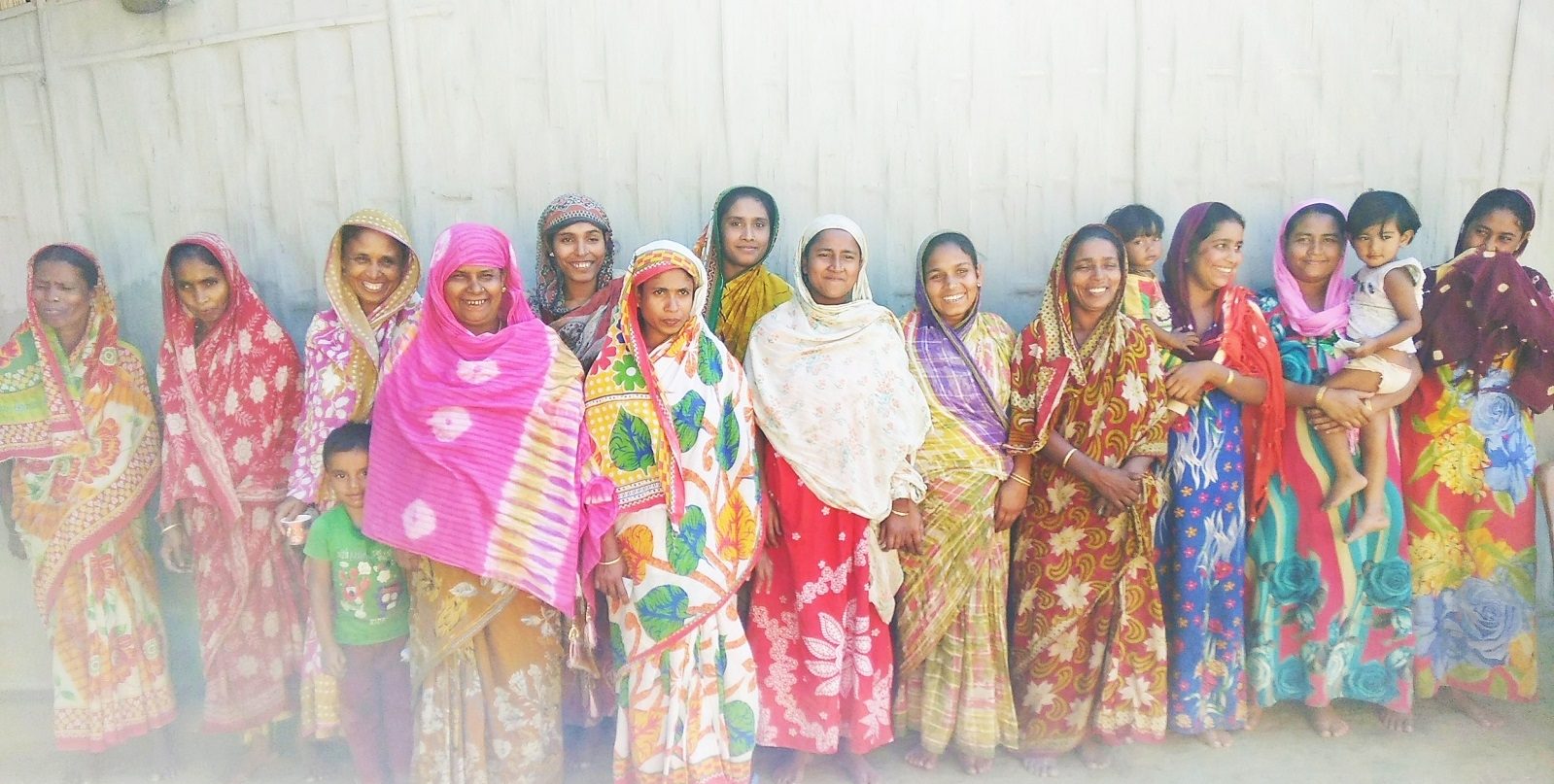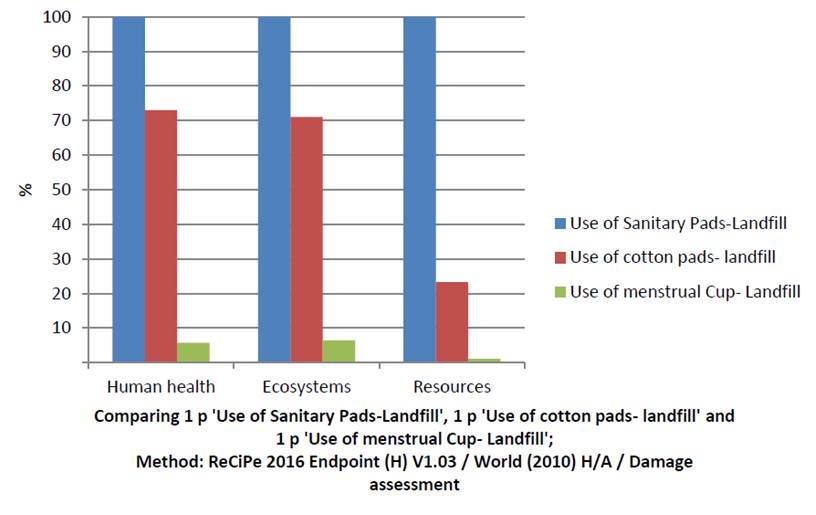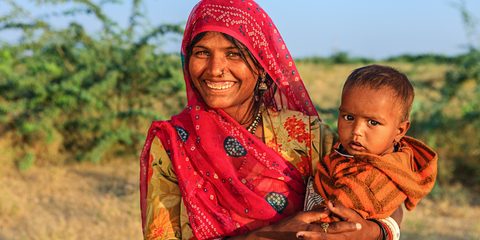
Themes of global women's health program in India
A brief summary of the ongoing research under each theme is given below:
1) Women’s cancers and gynaecological morbidity
More women than men have cancer in India, in sharp contrast to the global scenario – where men have a 25% higher incidence of cancer than women. This coupled with existing gender disparity in health care expenditures and financing strategies underlines the importance of research around financing of cancer care for women in India. This longitudinal pilot study aims to bridge this gap by examining the economic impact of being diagnosed with breast, cervical or ovarian cancer on households over a period of 6 months. In addition, the study examines the impact of cancer on quality of life of these women. This research is being conducted in partnership with Postgraduate Institute of Medical Education & Research and Public Health Foundation of India.
2) Women, health and the environment
Menstrual hygiene management is vital to the promotion of women’s health. In India, menstrual hygiene practices including the disposal of the used absorbents have received inadequate attention from policymakers, and implementers, and pose ever-growing challenges to environmental sustainability and the personal health, well-being, and functioning of girls and women, with implications for the accomplishment of several SDGs. This study, using a qualitative and exploratory approach, is conducted in Telangana state with the following aims:
(a) To understand community perspectives, preferences, and behavioural control related to post-use treatment and disposal of menstrual absorbents, and the associations that women and girls make between menstrual hygiene practices and personal and environmental health
(b) To estimate the environmental footprints of the menstrual hygiene management practices that come up in the data-collection.

3) NCDI prevention, identification and treatment
LIVING (Lifestyle InterVention IN Gestational Diabetes)
Women who have had gestational diabetes mellitus are at high risk to develop Type 2 diabetes mellitus in the years following childbirth. The LIVING study is a trial for the effectiveness and scalability of the prevention or delay of the development of type 2 diabetes mellitus in this relatively young population, often accorded low priority in Low and Middle Income Countries. A Randomized Controlled Trial is being conducted in India, Sri Lanka, and Bangladesh to determine whether a resource- and culturally-appropriate lifestyle intervention programme in South Asian countries, provided after childbirth, to women with prior gestational diabetes, will reduce the incidence of worsening of glycaemic status, in a manner that is affordable, acceptable and scalable.
This multi-country study is being conducted in partnership with All India Institute of Medical Sciences, CCDC, icddr, b, and RemediumOne.
Every year, millions of women die from heart disease, stroke and complications of diabetes, with the greatest number of deaths occurring in low-resource settings, such as parts of rural India. The SMARThealth Pregnancy programme aims to improve the detection and management of high risk pregnancy conditions in the community, with targeted post-pregnancy care to prevent longer-term complications. The intervention specifically targets hypertension, anaemia and gestational diabetes and addresses long-term risks of cardiovascular disease and type 2 diabetes.
A pilot study is currently being implemented in the states of Haryana and Andhra Pradesh where community health workers are trained to use smartphone application designed to identify and follow-up high-risk patients in the community, with electronic referral and advice from primary and secondary care physicians. The application contains clinical decision support algorithms, based on local clinical guidelines, ensuring that people receive evidence-based and quality care. This project is led through the University of Oxford in collaboration with The George Institute India.
4) Human Resources for Health
The project focuses on female community health workers, who are the backbone of Indian health system. Principles of implementation research is applied with the following aims: a) To characterize the provenance, content, and assess health service utilization facilitated by existing community health worker programmes carried out by state (in tribal affairs, environment and forestry, and health departments) and non-state actors in service of two isolated tribal communities of India in Kerala and Karnataka; (b) To assess the barriers and facilitators of service utilization facilitated by these programmes from the perspective of community health workers, community members, as well as state and non-state actors involved in their implementation; and (c) To propose state-specific and generic recommendations to improve the design of and coordination between community health worker programmes in tribal settings in order to improve service utilisation, using the National Rural Health Mission’s ASHA programme as a frame of reference, with an emphasis on the recognition and participation of tribal communities in promoting their health. Specific analyses on community health workers serving tribal areas and on tribal women’s health needs
This research conducted in the Nilgiri Biospehere Reserve region, spanning the southern Indian states of Karnataka and Kerala in partnership with the Zilla Budakkattu Girijana Abhivrudhhi Sangha and Department of Health and Family Welfare, Government of Kerala.
Women leaders in Global health
Approximately 38 % of India’s health workforce is female; 30% of this workforce comprises nurses and midwives, alongside a cadre of close to a million strong frontline health workers, or ASHAs. At higher levels of qualification, female representation dwindles: only 16% of biomedical doctors are female; only 6% in rural areas. Women are not commonly found in very senior positions in the health domain in India, in line with global trends. The focus of this project is on women’s health leadership with aim to carry out fieldwork that identifies women health leaders in India in order to contribute to (a) ongoing women’s health and health equity-linked projects in India; b) contribute towards peer reviewed publications and an edited volume chapter for a book being put together by the RinGS consortium on Women Leaders in Global Health (WLGH), and (d) develop a methodology that can be replicated in other countries that seeks to highlight the accomplishments, challenges and visions of women health leaders globally.
Primary data collection is undertaken in the south Indian state of Kerala as it has the highest female health workforce in India.













